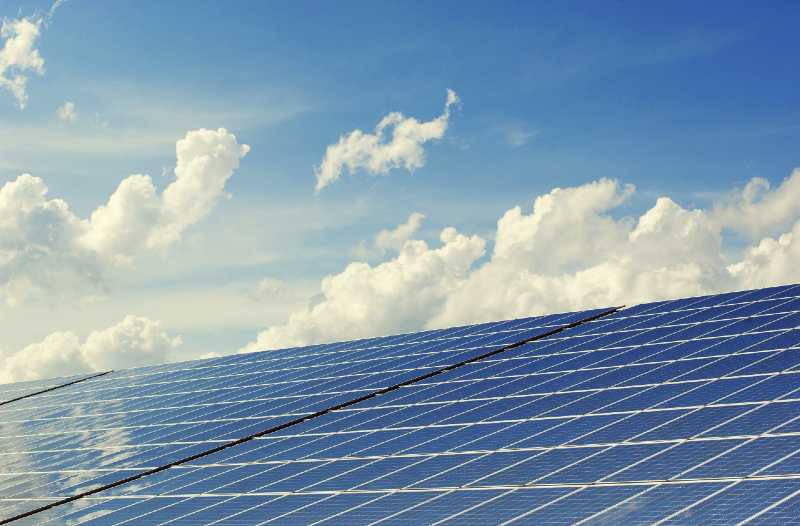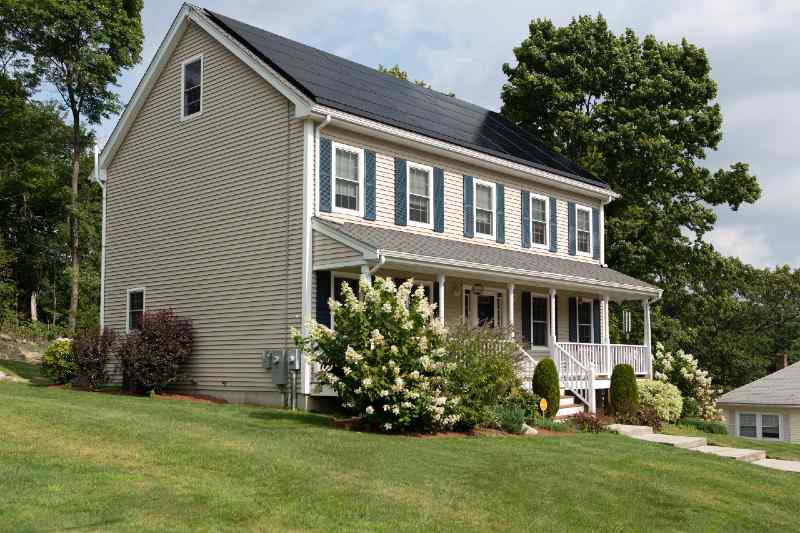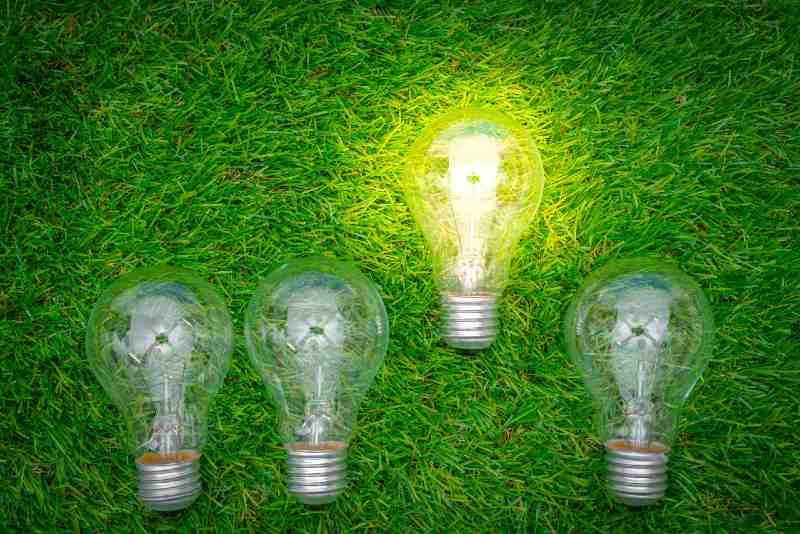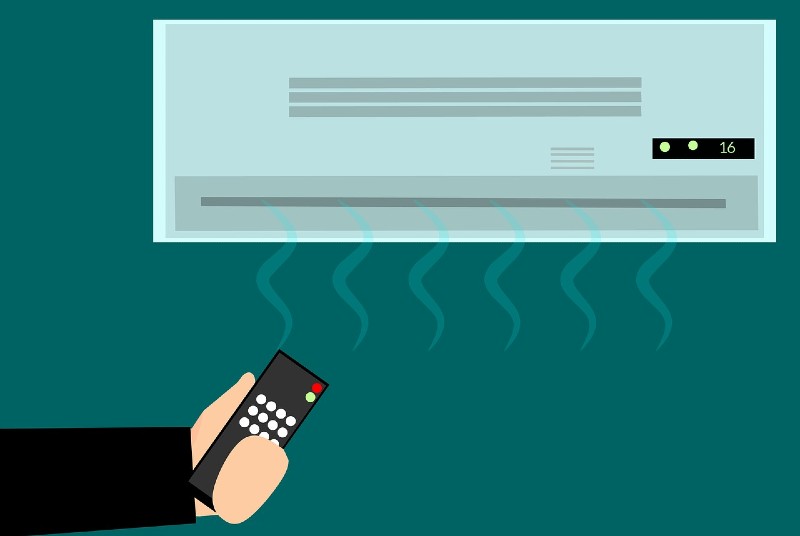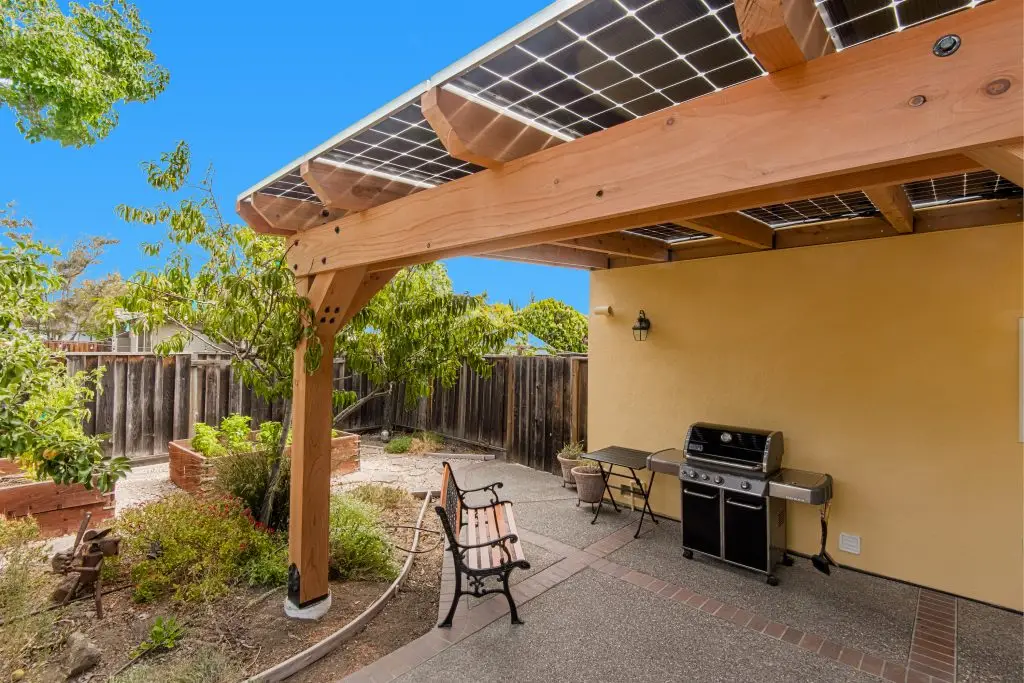You installed solar panels to save money on your electric bill, but now your electricity bills are even higher than it was before! What gives?
Don’t worry, we’re here to help.
Many people who switch to solar power find that their electricity bills go up at first.
This can be confusing and frustrating, but there is a reason for it.
In this blog post, I’ll walk you through the reasons why your electricity bills might be so high with solar panels, and we will give you some tips on how to fix the problem.
Key Takeaways
- Your solar system may not be activated yet, as connecting to the grid requires approval from the utility company, which can take from one month to six months.
- You may receive a high True Up bill annually if your electricity usage exceeds what your solar panels have generated over the year.
- Sometimes, solar panels may be faulty due to damage, defects, or poor installation, which can reduce their electricity output.
- If your electric meter is not accurately recording the electricity sent back to the grid, it could falsely show higher usage leading to higher bills.
- Over time, solar panels lose efficiency in converting sunlight to electricity, which can gradually increase your reliance on grid power and raise your bills.
Why Is My Electric Bill So High With Solar Panels?
1. Your Solar System Isn’t Working… Yet
Just because your solar panels are up on the roof doesn’t mean they’re saving you money right off the bat.
Before your panels can start chipping away at your electric bill, your local utility company needs to give you the green light to connect them to the electrical grid.
They’ll check to make sure everything is up to snuff and won’t mess with the broader power system.
Usually, this permission process, known as getting Permission to Operate (PTO), takes about 1 month.
Sometimes, it can stretch up to 6 months.
If your bills are high right after installation, it’s likely because you’re still waiting on that approval.
So, what can you do?
Keep in close touch with your solar installer to see if there’s any way to speed up the process with the utility company.
Also, check if everything has been submitted correctly and keep an eye on any updates they might provide about your PTO status.
Once you’re connected, you should start seeing those expected savings.
2. It’s a True-up Bill
If you’ve got solar panels and a connection to the main power grid, you’re probably using something called net metering.
Here’s how it works in simple terms: whenever your solar panels make more electricity than your home uses, the extra power gets sent back to the grid.
In return, you get energy credits.
These credits come in handy on days when your panels aren’t producing enough power (like on cloudy days), and you can use them to lower your electric bill.
But there’s a catch called the True Up bill.
Once a year, your utility company will do the math on how much electricity you sent to the grid versus how much you used.
If it turns out you used more than you sent, you’ll get a bill for the difference.
And since this bill covers your entire year’s balance, it can be a bit of a shock if it’s more than you expected.
To avoid surprises, keep an eye on your monthly statements to track how your credits are adding up.
If you notice you’re using more electricity than your panels are producing, try cutting back on energy use where you can, especially during peak usage times.
This way, when the True Up bill comes, it won’t be such a wallet hit.
3. Your Solar System Is Faulty
Sometimes, though it’s pretty rare, solar panels can have issues.
This could be because they got banged up during transport, were hit hard by a storm, came with some defects from the factory, or weren’t installed correctly (like messy wiring, for example).
So, how do you tell if something’s not right with your panels?
A smart move is to regularly check how much energy they’re producing.
Most solar systems come with a website or an app where you can see all this info.
If you spot any weird patterns, like your energy production suddenly dropping when it shouldn’t, that’s a red flag.
If you see something off, don’t wait around.
Reach out to the company that installed your solar panels.
They should be able to figure out what’s going wrong and get things fixed up.
Keeping on top of this not only helps prevent bigger problems down the road but also makes sure you’re getting the most out of your solar investment.
4. Faulty Electric Meter
Your electric meter is like the cashier for your home’s electricity.
It’s usually hanging out next to your breaker box, and its job is to keep track of how much electricity you’re using from the grid.
Whatever it sees, it shows on its display.
Here’s the cool part: if you have solar panels and they’re making more energy than you need, the extra power goes back into the grid.
When this happens, your meter does a little backflip — it runs backward.
This means you’re getting credit for the energy you’re sending out, which can help lower your bill.
But what if your meter isn’t showing those backward moves?
That’s a problem because then it looks like you’re not generating any solar power at all, and your electric bill could be higher than it should be.
To keep things in check, watch your meter on a sunny day when your solar panels are doing their thing.
Is the meter ticking backward?
If not, there might be a hiccup, and it’s time to call someone.
You can reach out to your solar installer or your utility company.
They can check if your meter needs fixing or replacing so you can make sure you’re getting credited for all that awesome solar power you’re generating.
5. Your Solar System Is Dying
You know how everything ages and slows down?
Well, solar panels do too.
They go through what’s called the “degradation effect.”
Over time, solar panels lose a bit of their mojo to convert sunlight into electricity.
Here’s what that means in simple terms: If you start with solar panels that can crank out 1,000 kWh of electricity in their first year, they won’t keep up that pace forever.
Each year, they might lose about 0.5% of their productivity.
So, by the second year, they’d be down to producing about 995 kWh, and then about 990 kWh the next year, and it keeps dropping a bit like that year after year.
So, if your panels have been up there on your roof for a good while, they won’t be as powerful as they were when they were brand new.
This gradual drop in power can sneak up on you and might be why your electric bill is higher than you expected, even with solar panels.
If you’re noticing your bills creeping up, check out how old your panels are and how much power they’re supposed to be producing now compared to when they were new.
If they’re falling behind, it could be time to think about upgrading to newer, more efficient panels to get your energy savings back on track.
6. Weather Conditions
Weather can affect how well your solar panels work.
On cloudy days, or when there’s snow and storms, your panels won’t be able to catch as much sunlight.
That means they’ll make less electricity.
And shading?
It’s a big deal too, especially if your panels are all connected in a row (that’s what we mean by “in series”).
Even a little bit of shade, like from a tree or a nearby building, can cut down on how much power they produce, which could be why your electric bill seems high.
To stay on top of this, you can check how much power your panels are putting out regularly.
You can usually do this through a website or an app linked to your solar system.
If you notice the numbers are lower than expected, and it’s not because of bad weather, it might be time to call for some repairs or maintenance to get things back on track.
7. Your Electricity Usage Has Changed
Another reason your electric bill might be higher even with solar panels could be that you’re using more electricity than before.
Maybe you’ve got more gadgets plugged in these days, or perhaps more people use power at home.
When you add more appliances or electronics, or if more folks are hanging around using energy, it naturally drives up your consumption.
Here’s the thing: if your household uses more electricity, your solar panels won’t cover as much of your needs, even if they’re working as usual.
So, if you notice your bill creeping up, take a look around.
See if there are new devices you’re using more often, or consider if lifestyle changes at home might be causing the spike.
8. Utility Rates Have Increased
If you’ve noticed your electric bill is higher than usual, it could be because the utility rates in your area have gone up.
Sometimes, these rates increase without any heads up, and remember, the power you pull from the grid isn’t free.
So, if the rates jump, your bill will too—even if you’re using the same amount of electricity as before.
When your bill spikes, it’s a good idea to check if there have been any rate changes recently.
This could easily explain why your costs are up.
How to Reduce Your Energy Consumption
1. Use Energy Efficient Appliances
If you’re looking to cut down on your energy use, a great place to start is with your appliances.
Go for the ones that are Energy Star certified—they’re way more efficient than regular models and can seriously lower your electric bill.
And why not smarten up your home while you’re at it?
With smart devices, like thermostats, you can control how much energy you use right from your phone.
These gadgets are pretty clever; they can automatically turn off your heating or air conditioning when nobody’s home.
That means you’re not wasting energy (and money) heating or cooling a space.
Just by upgrading to these energy-efficient appliances and smart devices, you could save up to 10% a year on your energy bills.
2. Unplug Appliances When Not In Use
It’s all about the sneaky power use called “standby power” or “vampire power.”
This is the energy that devices use even when they’re turned off, just by being plugged in.
Things like your TV, computer, and even your coffee maker can still consume electricity if they’re plugged into an outlet.
So, to easily cut down on this hidden energy drain, plug your devices into a power strip.
When you’re not using them, or if you’re going out, just flip the switch on the power strip to cut all power to the devices.
This simple action stops them from drawing power unnecessarily and can help you save around $100 per year on your energy bill.
3. Install LED Lights
A simple swap from those old-school incandescent bulbs to LED light bulbs can make a huge difference.
Why LEDs?
Well, they shine just as brightly as the old bulbs, but they use way less electricity and last a lot longer.
You can screw LED bulbs into any lamp or fixture where you’d normally use a standard bulb.
Making this switch is not just about saving energy; it’s also about saving money.
Believe it or not, moving to LED lighting could save you about $4,000 over time.
So, next time you’re shopping, grab some LEDs and start changing those bulbs out—you’ll see the difference in your energy bill!
4. Use Solar Water Heaters
If you’re in a place with cold winters and looking to cut down on your heating bills, you can consider installing a solar water heater.
These systems harness the sun’s energy to warm up your water tank, which can reduce your utility bills since you’re not using pricey gas or electric heat.
What’s great about solar water heaters is that they can slash your water heating costs by up to 80%.
But the benefits of solar energy don’t have to end with just heating water.
You can take it a step further by adding more solar panels to your home or by using passive solar designs.
This could include choosing building materials that naturally insulate and retain heat, helping to keep your home cozy without cranking up the thermostat.
5. Upgrade Your Existing Solar System
Technology keeps getting better, and that includes solar panels.
The latest models are much better at turning sunlight into electricity than the older ones.
So, if you swap out your old panels for new ones, even if they’re the same size, you’ll end up getting more power from the same amount of sunlight.
If you’ve noticed that your current solar system isn’t putting out as much power as before, it might be time for an upgrade.
I prefer going for panels with higher efficiency ratings.
These not only produce more energy but also ensure that you get the most out of your investment over the long haul.
FAQs
What Happens If Solar Panels Produce More Electricity?
If your solar panels produce more electricity than you use, the excess power is typically sent back to the grid. You may receive credits from your utility company, reducing future bills.
Why Is My Electricity Bill So High When I Have Solar Panels in the UK?
Your electricity bill is so high despite having solar panels possibly due to insufficient solar production, increased household energy consumption, or technical issues like faulty meters or inefficient panels.
Do Solar Panels Take a Lot of Energy to Make?
Solar panels take a lot of energy to manufacture, but the energy payback period is usually short, often ranging from 1 to 4 years depending on the technology used.
Do More Solar Panels Mean More Energy?
More solar panels mean more electricity production; provided there’s enough space and they are properly positioned.
Conclusion
There are many reasons why your electric bill may be higher than usual, from True Up bills to faulty solar systems and bad connections.
However, with a little foresight and planning, you can take steps to reduce your energy usage and keep your energy bills under control.
We hope this article has cleared up any questions you might have.
If you still have any questions please share them with us.

